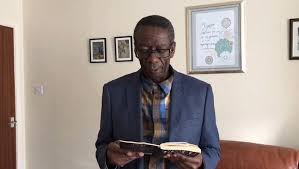The Parable of the Lost Son (it’s also called the Parable of the Good Father) and that of the Good Samaritan are the two most popular parables in the Christian Scriptures. Yesterday, the children read the Good Samaritan. It seems to be more popular, with children at any rate, than the Lost or Prodigal Son. The two are also the most popular parables in Uganda. They also offer a bitter indictment of our society.
A central point in the Parable of the Good Samaritan is not just about a kind man who takes the trouble and inconveniences himself to attend to an unknown victim of brutal mugging. The intriguing point is the context of the parable. In the Palestine of Jesus’ time, Jews regarded Samaritans as heretical and close to gentiles. Jews and Samaritans did not eat together or share utensils. That is why the Samaritan woman at the well (John 4) is very surprised when Jesus, a Jew, asks her for a drink. She knows well just as Jesus that Jews and Samaritans do not share cups or plates.
So, in the parable, the Samaritan, an “outsider” shows neighbourly love to a stranger and thus fulfils that God’s law requires while the Jewish Priest and Levite, both official religious leaders, just pass by on the other side. Taking care of the wounded man does not just require kindness. It’s also inconveniencing and may expose one to some nastiness. We might not want to get involved. We prefer to keep in our own lane. We don’t want to get into trouble. We look, cross over to the other side of the road and walk away.
You now see why I said that the Prodigal Son and the Good Samaritan are not merely didactic, but also indicting.
The man who fell among robbers and was beaten and left for dead is the embodiment of victims of politically inspired torture in our country. Like the Priest and the Levite in the story, we may see, cross over to the other side and go our way. None of our business, we say. We may convince ourselves that one man or woman may die, but life must go on. Note that in the story, the victim is not named. We don’t even know what nationality or ethnicity he was.
Do you have a story in your community or an opinion to share with us: Email us at editorial@watchdoguganda.com













